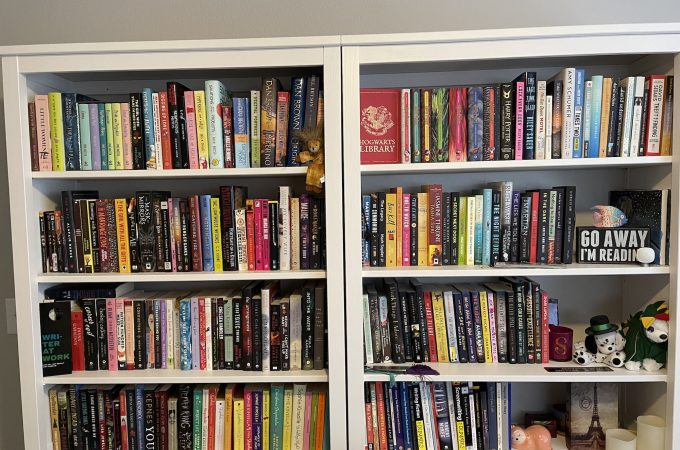
What not to write in your novel
There’s plenty of advice out there on how to write well, but what about advice telling us what not to put down on paper? It’s just as important to know what to avoid putting in your novel as it is knowing what to make sure you include, such as a good cast of characters, interesting plot points, and a fun, immersive setting.
We’ve all read novels with things we don’t like but there seems to be some universally hated things among readers and these are things you should try to avoid putting in your own writing.
From small annoyances to bigger plot problems, there are some things we accidentally do in our writing that our readers will latch onto and end up stewing over and might miss the better parts of the writing.
In this post I’m going to cover seven things you should not write into your novel!
1. I’ve got a secret
But I won’t tell you for 300 pages. Oh, I’ll drop obnoxious hints over and over and over again until you’re so mad about what my secret is that you do not care one bit when I reveal it.
I read a fantasy book like this recently where the main character was hiding part of her parentage but kept dropping hints like, “they couldn’t possibly find out what I was or I’d be in serious danger,” and then repeat that same idea over and over and over again. We finally find out she’s a nephilim but then she drops a new secret: I can’t tell them which angel my father is!
I wanted to rip my hair out. It’s one thing to hint at a secret or apply some foreshadowing but when the character teases his or her secret so many times it eliminates the shock value of the reveal. This is especially worse when the story is written in first-person POV, as there’s no reason the character would be hiding this information inside their own head.
If you’re going to have a character with a secret reveal I’d recommend writing your story in third-person or finding subtle ways to hint at the secret, like a conversation between the one with the secret and a close friend that has to be said in code or cut short to avoid the reveal. It’ll feel more natural and won’t draw as much attention as a character whose head we’re in repeatedly alluding to this secret that they never fully show the reader.
2. You don’t know you’re beautiful, that’s what makes you beautiful
You’ll often see this in YA where the main character is said to be plain and not conventionally attractive yet every single person in the book is attracted to them or is jealous of them. One of the worst offenders of this is Bella Swan from Twilight. She has no personality and is constantly said to be only beautiful in Edward’s eyes but every single boy and even a teacher wants to get with her. Why exactly?
If we’re supposed to find a character attractive, that’s okay and it should be written! It’s okay to write a character that’s confident and owns their attractiveness. Or, if we’re keeping them humble and plain in the looks department at least have personality traits that make them attractive, such as being funny, being easygoing and friendly, or very intelligent.
3. I couldn’t help but wonder how Carrie Bradshaw afforded her life
I feel this applies to TV more often than novels but it’s still a common offender. We’ll have characters that don’t have six-figure salaries that can afford designer clothes, a giant apartment, and travel six months out of the year. Their debt is never addressed nor their means of their lavish lifestyle.
Make sure your character isn’t living in a fantasy or at least has a realistic reason for their incredible life. Maybe they’re great at saving money and using coupons or had a scholarship to college, or they’ve inherited money from their family.
4. As you know…
This offender often comes from movies and is the standard, “As you know, Karen,” and then they launch into exposition about something Karen should already know. “As you know, Karen, my dad was really sick and left me a giant inheritance and now my family is squabbling over it.” It’s not for Karen’s benefit but for the audience’s.
Find a more clever way of working exposition into the story instead of having character communicate things they already know but we need to be caught up on.
5. This is the exciting, amazing, unbelievable fifth point
Have you ever gotten so distracted by the number of adjectives used to describe something simple? I’ve loved JK Rowling’s Harry Potter books, but her Cormoran Strike novels have been hit or miss and it’s because of the excessive description. While it works in Harry Potter to describe fantasy settings and magical elements, it does not work when describing things I see and use every day like doors and stairs.
I seriously got so distracted by the sheer number of adjectives and descriptions that I couldn’t concentrate on the story. I know one of the first rules of storytelling is “show, don’t tell,” but there is a line.
6. There’s a glitch in the Matrix
Haven’t we read this scene or gone over these details before? I couldn’t even finish the Fifty Shades of Grey series because of the severe repetition. I mean the story had a slew of other serious problems but I could swear that sex scenes or conversations were straight up copy and pasted throughout the books.
Repetition can be good to cement an idea or call attention to something important but when it feels like we’re seeing the same scene over and over or rehashing the same conflict over and over again, it becomes tedious and feels like manufactured conflict and tension. There’s no reason to care because we’ve already seen the characters resolve this issue… only to bring it back up again.
7. Are we still talking?
Let’s be honest, there are some formalities of everyday conversation that are quite boring and definitely do not need to be replicated on the page. Conversation in novels, TV shows, and movies aren’t how we talk in real life and that’s fine. These conversations are meant to serve a purpose and further the plot or character’s arc. Readers do not need to see every exchange of: hello, how are you, fine, thanks and you, oh, I’m fine. We get it, let’s skip ahead to the good stuff since we can’t do that in the real world.
What annoys you or gets your attention, the bad kind, when you read novels? Share your thoughts in the comments below or over on Twitter with me at @sjdonelson303!




